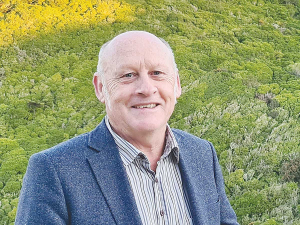Rural medical professionals, and those with an interest in rural health, have generally welcomed the Government's move to reform the sector.
However, they say ultimately the detail will be the biggest factor for them.
The thrust of the reforms is to go back to a centralised system, which includes replacing the DHBs (District Health Boards) with one organisation, HealthNZ, setting up a new Public Health Agency and a new Māori Health Authority. Health Minister Andrew Little claims the aim of the changes to is to put greater emphasis on primary healthcare and ensure fairer access for all New Zealanders.
"We are going to put the emphasis squarely on primary and community healthcare and will do away with duplication and unnecessary bureaucracy between regions, so that our health workers can do what they do best - keep people well," he says.
NZ Rural General Practice Network chief executive Dr Grant Davidson says they welcome the focus on improved primary and community healthcare and a simplified national structure to ensure fairer access to healthcare for New Zealanders.
"Our current health system is not servicing people in rural communities," he told Rural News.
"This was acknowledged in the Health and Disability System Review, along with recommendations that major change was needed. We welcome the approach of a national plan that will meet health needs of people no matter where they are, including a digital strategy to assist this."
Davidson says that the creation of a new Māori Health Authority will provide much needed support to rural Māori communities and involve them in decision making, design and commissioning of any new delivery structure.
However, Davidson believes these changes are medium to long term in terms of potential impact and he's concerned they could cause a major distraction from the current crisis in workforce and funding that exists throughout rural New Zealand.
"The workforce is stressed, burnt out, and under-capacity.
"We need action to deal with that now until these changes come into effect," he says.
The one reservation Davidson has about the changes is in the lack of specific reference to rural people and communitiesas a priority population. He says the ability for the proposed major system changes to have positive impact on rural communities will now be in the detail of implementation.
"Our concern is that without rural being identified alongside Māori, Pasifika and disabled people as priority populations, our voice risks being lost in those implementation discussions.
Rural Women Speak Out
Dr Grant Davidson's view is echoed by Rural Women NZ (RWNZ), which says that while they are not averse to having a national health service, it looks forward to seeing the detail.
National president of Rural Women Gill Naylor says they want to be sure that by abolishing DHBs, the kind of treatment people get will no longer be determined by where they live.
"RWNZ expects to see a rural health and wellbeing strategy which is fully resourced and funded to ensure rural post codes aren't in the losing lottery," she told Rural News. "It is our expectation that the detail will also include a solid mechanism for including the voice of rural women, children and communities in decision-making by the new national health service. At the very least, there should be both a rural and gender impact analysis done on the affects of a national health service, before too much further work is done, to test if there will be any adverse impact on rural communities and women and girls in particular.”
Naylor says RWNZ is looking forward to seeing the detail and hoping that rural women and children will not lose out on the health services.



















